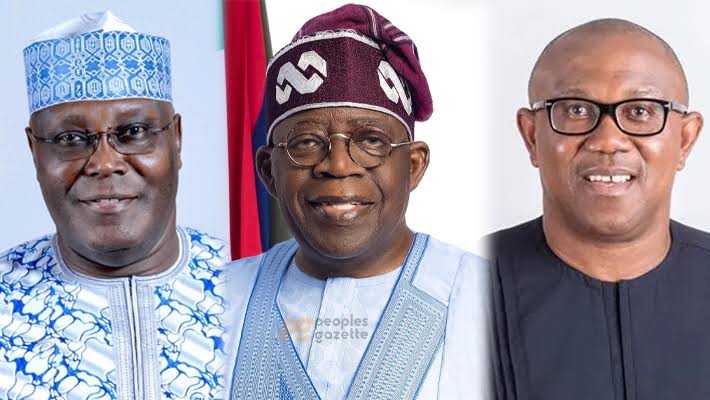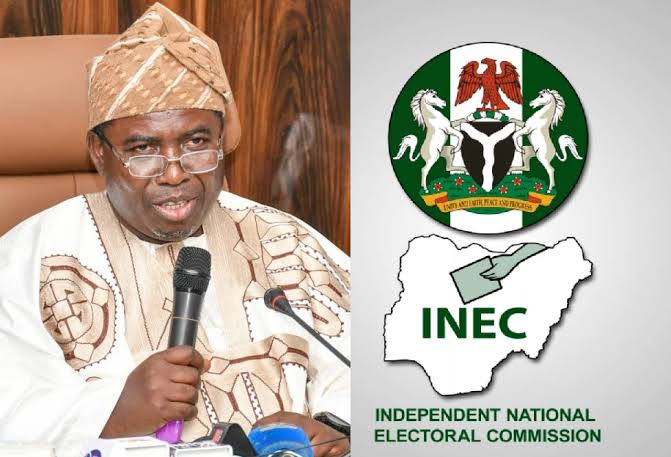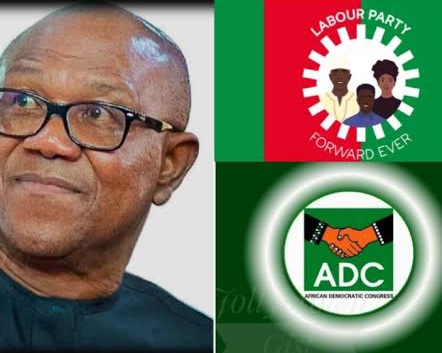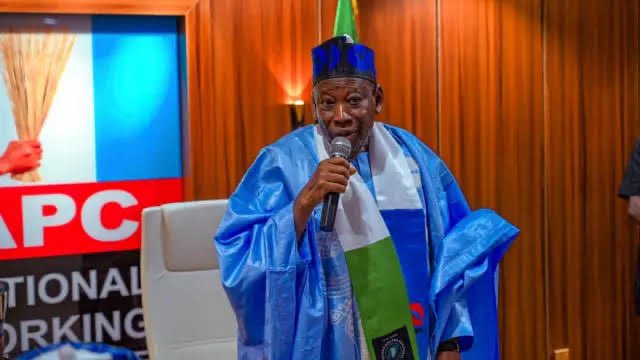Isaac Samuel
When former Vice President Atiku Abubakar recently restated his conviction that only a broad-based coalition could defeat President Bola Tinubu in 2027, he was not merely issuing a political statement. He was indeed sounding an alarm.
But the cacophony of responses that followed, especially from within his own party, the Peoples Democratic Party (PDP), reveals that all is not well within the opposition. Perhaps, with the recent declaration by the PDP governors who rejected any form of merger or coalition, the dream of a united opposition is already cracking under the weight of personal ambition, state power, and survival politics.
Rising from their meeting in Ibadan on Monday, 11 PDP governors, under the leadership of Bauchi State Governor Bala Mohammed, flatly rejected the idea of joining any coalition.
While not completely closing the door on welcoming others into the PDP, the message was clear; that the once ruling party now turned opposition would not collapse its identity into any broader alliance. That public disavowal came barely three after Atiku, alongside former Kaduna State governor Nasir El-Rufai, former Imo State Governor Emeka Ihedioha, former Secretary to the Government of the Federation (SGF) Babachir Lawal among other leading political figures announced a potential coalition to challenge Tinubu’s presidency in 2027.
But with the recent happenings and the fact that most of the opposition party are in disarray, keen observers in the political space would ask that: Where does the PDP governors decision leave the so-called coalition? Can these strange bedfellows find common ground beyond their shared opposition to Tinubu? Does Atiku still command the loyalty of a formidable base, or is he now a general without troops? Where does Peter Obi come in all of this and will the same elites El-Rufai antagonized in the past now trust him as a unifying figure? And ultimately, can any of them individually or collectively present a viable alternative in 2027?
To understand the gravity of this moment, one must revisit the 2023 general election. Then, Nigeria witnessed the most divided opposition in its recent history. Atiku Abubakar ran under the PDP. Peter Obi, having defected from the PDP months before the election, contested under the Labour Party. Rabiu Musa Kwankwaso ran under the New Nigeria Peoples Party (NNPP). Together, they polled over 14 million votes, with Atiku securing about 6.9 million, Obi 6.1 million, and Kwankwaso 1.4 million. Tinubu won with 8.7 million votes.
Many analysts believe that that fragmented contest handed victory to Tinubu and the All Progressives Congress (APC) despite evident discontent across many parts of the country, especially the huge disapproval rating of the then President Muhammadu Buhari of the ruling APC. Instead of a united challenge, the opposition split into three distinct blocs, each diluting the potency of the other.
Atiku, a serial contender whose name has become almost synonymous with presidential ambition in Nigeria’s Fourth Republic seems determined not to repeat that mistake. However, he appears isolated.
Perhaps, the PDP governors are staking their political survival on remaining distinct from any opposition merger, possibly wary of being drowned in a structure they cannot control. In a country where state governors are often the principal financiers of national campaigns, their lack of interest is not just symbolic; it’s fatal to the prospects of any serious coalition. This is because the idea of a mega-opposition alliance is not new in Nigeria. The APC itself was born out of such a union in 2013, when the Action Congress of Nigeria (ACN), Congress for Progressive Change (CPC), All Nigeria Peoples Party (ANPP), and a faction of the All Progressives Grand Alliance (APGA) merged.
That alliance successfully dethroned an incumbent president in 2015. But key to its success was not just unity; APC at that time had about 16 governors with about five of them defecting from the PDP. The governors also came with huge financial backing before they could wrestle power from Jonathan.
However, the opposite might be what the political landscape will witness ahead of 2027 if what Bukola Saraki, former Senate President and a long-time political ally of Atiku said recently is true.
During a private meeting with his loyalists in Ilorin recently, Saraki reportedly expressed skepticism about the viability of any opposition alliance. He stated that five PDP governors were already gravitating toward the APC and that the remaining governors lacked the motivation or resources to fund a genuine opposition movement.
He further claimed that President Tinubu would never allow the Independent National Electoral Commission (INEC) to register any serious new political platform that could threaten his re-election.
That comment wasn’t without merit judging by the utterance from Governor Umo Eno of Akwa Ibom State, a PDP governor who did not mince words recently when he declared that Tinubu would complete his eight years and that the state would stand by him.
Eno stated this in Uyo on Tuesday in his remarks at the flagging off of the Akwa Ibom – Cross River states section of the Lagos-Calabar Coastal Highway said:
“Let me end by assuring our people-loving president, who will complete eight years because we are going to stand by him. And this is the truth. He cannot start this work and abandon it. Somebody else may not finish it. The governor had declared like a pastor that he is passing spiritual verdict on his congregation.
In a different context, what the Akwa Ibom governor said could have been dismissed as political courtesy. But in today’s climate, it speaks volumes about where loyalties are shifting.
As it is, Atiku, Obi, and El-Rufai now appear as exiles from their original political homes. Atiku remains within the PDP but lacks control over it. He has a Wike he is contending with. Peter Obi commands passionate grassroots support but lacks structure. El-Rufai, a formidable political player with some northern appeal has not been able to attract significant political leaders to his new party, SDP.
Yet, even this new front is hampered by uncertainty. None of them has a functioning political machine at the national level, and more importantly, none controls the kind of financial and institutional muscle required to challenge an incumbent president in Nigeria.
Many observers believe that unless the opposition resolves its crisis, buries personal ambitions, and presents a credible, unified alternative, Tinubu’s path to re-election may be clearer than even he dares to imagine.
Speaking to this medium, National Coordinator of the Coalition of Northern Groups (CNG), Comrade Jamilu Aliyu Charanchi, warned that unless opposition figures put aside personal ambition to form a formidable coalition, the status quo would persist.
While expressing concern over what he described as the self-serving nature of Nigeria’s political elite, he noted that their inability to unite around a common cause could cause the citizens continued hardship under the current administration.
He also singled out former Kaduna State Governor, Nasir El-Rufai, accusing him of political inconsistency and opportunism.
According to him, the political actors involved in the coalition must keep selfish interest aside for such an alliance to work.
He said: “Let’s first consider Nasir El-Rufai, he is the same person who has been at the forefront of ensuring that Tinubu has come to power. He was in the National Assembly trying to secure, to defend his ministerial appointment. But unfortunately when he lost that ministerial appointment, that’s why is moving from here to here. But nevertheless, the issue on ground is that whether El-rufai is good or bad, whoever he is, the issue at hand in the country is that Nigerians are tired of this administration.
“Nigerians are seriously tired of this administration and there is nothing good to show for this administration. All we are seeing in this administration is suffering, killings, blood and so many other constitutional irregularities. It has no respect for the constitutional authorities.
“Nigerian politicians are self-centered politicians. They are not doing it for the benefit of the country, rather they are doing it for the benefit of themselves. Because why they cannot come together is because everybody is seeing that if not me, then I prefer just to lose. Everybody prepares himself and any other candidate for the situation.
“Among them they know who is better to change the narratives in this country. Even if within themselves they have not seen somebody who can change the narratives in this country, as patriotic citizens they are expected to go out of the box and shop for somebody who will change the narratives in this country. But unfortunately Nigerian politicians cannot do that. They are self-centered. They are only doing it to serve themselves. They are only doing it for the benefit of themselves.
“They are not doing it for the benefit of the masses, neither are they doing it for the benefit of the country. They don’t care if today we say that there is no country called Nigeria. They don’t care.
They don’t value the masses in the country. They don’t have respect for God. They don’t have respect for human feelings. They don’t have respect for anything. They don’t have respect for the constitutional authorities. That’s why you see that Nigerians are still suffering.
For the executive director of the Civil Society Legislative Advocacy Centre (CISLAC), Auwal Musa Rafsanjani, Nigerians should not feel constrained by the dominance of the ruling All Progressives Congress (APC) or the seeming decline of the opposition Peoples Democratic Party (PDP).
He said aside the much talked about coalition that is yet to see the light of the day, electorates still holds the power to bring about meaningful change through the ballot.
According to Rafsanjani, Nigerians retain the democratic right to reject both major parties if they feel let down by their performance.
He stressed that even the so called powerful governors were unable to prevent electoral losses in the last general elections, pointing to the example of sitting governors who he said failed to win senatorial seats.
Rafsanjani expressed dismay at the current state of the PDP, which he said has lost its vibrancy and appears to have been conquered and destabilised”by the APC.
While knocking the PDP governors for coming out to reject an alliance that could possibly defeat the ruling party, the CISLAC boss said: I don’t see this as a major worry, l because even the governors of PDP in the last election, they have not stopped Nigerians from exercising their vote. Some of sitting governors contested election at the senatorial district and lost. So this means that if Nigerians are determined to make change to the system, they can actually do that.
“So the governors cannot be stumbling block to Nigerians. It is all about people and once the people are determined, they come out to vote massively for their own choice of party.
“I mean, for the opposition party to come and make this kind of statement, it’s very very surprising. It means that the ruling party had actually conquered the opposition party. They have no capacity to resist the ruling party every now and then and they have been hijacked by the ruling party”.





